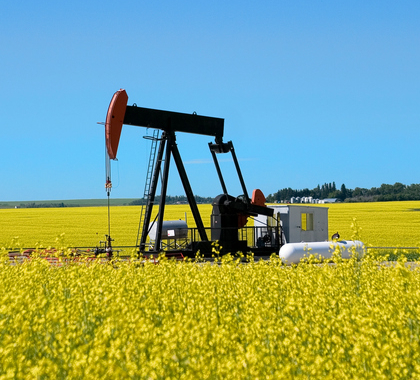Proposals have been introduced in the Florida Legislature that would permanently ban hydraulic fracturing, also known as “fracking,” in the Sunshine State. Opposition to fracking in Florida stems partly from environmental concerns over the possibility the process could contaminate the Everglades National Park or groundwater in the Floridan or Biscayne aquifers, which provide drinking water to most of the state’s population.
Enacting a permanent ban on fracking would be a costly mistake. The existing peer-reviewed evidence shows hydraulic fracturing processes do not pose a systemic impact on groundwater. Since 2010, at least 15 of these studies have been produced, including ones by the Bureau of Economic Geology at the Jackson School of Geosciences at the University of Texas-Austin, the Department of Geology at the McMicken College of Arts and Sciences at the University of Cincinnati, the California Council on Science and Technology and the Lawrence Berkeley National Laboratory, the Department of Energy’s National Energy Technology Laboratory, and Germany’s Federal Institute for Geosciences and Natural Resources.
This is reinforced by the Environmental Protection Agency’s own $29-million, six-year study of fracking’s impact on groundwater sources, which failed to find any systemic impact caused by the 110,000 oil and natural gas wells that have been in use across the country since 2011. While EPA says leaking well casings and surface spills can impact water sources, the study acknowledges the number of impacted sites are very rare compared to the amount of wells drilled.
While no fracking is currently being conducted in the state, the process has been used in the past, and Florida has a long history of oil and natural gas extraction. The U.S. Energy Information Administration reports over 2.2 million barrels of crude oil were extracted from the state in 2015, along with 5.79 billion cubic feet of natural gas.
According to the state Department of Environmental Protection, “Over 1,000 permitted wells have been drilled [in Florida] since 1943. During this timeframe, the petroleum industry has safely produced 611 million barrels of crude oil and 689 billion cubic feet of natural gas. … There have been no major accidents, spills, or blowouts in Florida’s history. Compliance rates with permit provisions and Florida’s rules and statutes for the industry is very high, around 98 percent.”
As well as being environmentally safe, fracking has had a positive economic impact on those areas that have allowed the practice. A study released in late December 2016 of communities near shale basins – conducted by researchers at the University of Chicago, Princeton University, and the Massachusetts Institute of Technology (MIT) – determined hydraulic fracturing activity brings $1,300 to $1,900 in annual benefits to local households, including “a 7 percent increase in average income, driven by rises in wages and royalty payments, a 10 percent increase in employment, and a 6 percent increase in housing prices.”
The fracking process has transformed the energy outlook of the United States over the past decade. According to the U.S. Energy Information Administration, fracking now accounts for 51 percent of all U.S. crude oil production. The oil and natural gas hydraulic fracturing has enabled us to exploit are cost-effective and abundant, and they can ensure the United States is the world’s largest energy producer well beyond the 21st century.
Drilling is currently being conducted across the country, including in Florida, in a safe and responsible manner. Federal, state, and local governments have tested thousands of sites for hydraulic fracturing pollution of groundwater and drinking water resources, as well as for air quality. Flatly, there is no scientific justification for banning hydraulic fracturing or overregulating it out of existence.
The following documents provide more information about hydraulic fracturing.
The Local Economic and Welfare Consequences of Hydraulic Fracturing
https://heartland.org/publications-resources/publications/the-local-economic-and-welfare-consequences-of-hydraulic-fracturing
This comprehensive study published by the National Bureau of Economic Research says fracking brings, on average, $1,300 to $1,900 in annual benefits to local households, including a 7 percent increase in average income, a 10 percent increase in employment, and a 6 percent increase in housing prices.
What If … Hydraulic Fracturing Was Banned?
https://heartland.org/publications-resources/publications/what-if-hydraulic-fracturing-was-banned
This study is the fourth in a series of studies produced by the U.S. Chamber of Commerce’s Institute for 21st Century Energy. It examines what a nationwide ban on hydraulic fracturing would entail. The report’s authors found by 2022, a ban would cause 14.8 million jobs to “evaporate,” almost double gasoline and electricity prices, and increase natural gas prices by 400 percent. Moreover, cost of living expenses would increase by nearly $4,000 per family, household incomes would be reduced by $873 billion, and GDP would be reduced by $1.6 trillion.
What If … America’s Energy Renaissance Never Happened?
https://heartland.org/publications-resources/publications/what-ifamericas-energy-renaissance-never-actually-happened
This report by the U.S. Chamber of Commerce’s Institute for 21st Century Energy examines the impact the development of shale oil and gas has had on the United States. The report’s authors found that without the fracking-related “energy renaissance,” 4.3 million jobs in the United States may not have been created and $548 billion in annual GDP may have disappeared since 2009. Electricity prices would also be 31 percent higher and gasoline prices 43 percent higher.
Hydraulic Fracturing a Game-Changer for U.S. Energy and Economies
https://heartland.org/publications-resources/publications/hydraulic-fracturing-a-game-changer-for-us-energy-and-economies?source=policybot
In this Policy Study from The Heartland Institute, Heartland Research Fellow Isaac Orr explains the advantages and disadvantages of smart drilling and its alternatives. Orr reviews the background and potential of hydraulic fracturing in the United States and puts that potential in the context of the supply of and demand for oil and gas. He addresses the environmental impacts of hydraulic fracturing, both positive and negative, as well as the public safety issues raised by activists, such as potential harm to drinking water supplies. Orr also discusses how oil and gas production is regulated at the state and national levels and suggests appropriate policies for the industry.
Bill McKibben’s Terrifying Disregard for Fracking Facts
https://heartland.org/publications-resources/publications/bill-mckibbens-terrifying-disregard-for-fracking-facts?source=policybot
This Heartland Institute Policy Study, written by Research Fellow Isaac Orr, examines how methane emissions are measured, reports the effect those emissions may have on global warming, and discusses several falsehoods journalist Bill McKibben repeats from the discredited movie Gasland. It also evaluates the available fracking alternatives and discusses the relatively small impact new methane-emissions rules enacted by the Environmental Protection Agency will likely have on Earth’s climate.
Research & Commentary: Study on Fracking-Related Air Pollution in Ohio Retracted Due to Errors
https://heartland.org/publications-resources/publications/research–commentary-study-on-fracking-related-air-pollution-in-ohio-retracted-due-to-errors?source=policybot
Tim Benson, policy analyst at The Heartland Institute, writes about a joint study from researchers at Oregon State University and the University of Cincinnati – originally published in the peer-reviewed journal Environmental Science and Technology in March 2015 – claimed hydraulic fracturing, also called “fracking,” of the Utica shale in Carroll County, Ohio is causing significant air pollution. But the researchers have retracted the controversial study due to its numerous miscalculations and errors. When much of the erroneous data was corrected, the researchers found they “significantly” changed “air concentrations … relative to those reported in the published article.”
Fracking Facts: The Science, Economics, and Legal Realities
https://heartland.org/publications-resources/publications/fracking-facts-the-science-economics-and-legal-realities?source=policybot
Hydraulic fracturing, commonly known as fracking, has been employed in the United States since the 1940s. Although innovation has improved the precision of the process, the essentials are the same. Utilizing horizontal drilling, a mixture of mostly water, sand, and trace amounts of chemicals, are used to create fissures in underground shale deposits to allow oil and natural gas trapped in hard rock to move toward the surface to be collected. Activists have blamed fracking and the processes associated with it for emissions of pollutants, earthquakes, and even groundwater contamination, though independent evidence consistently shows these allegations to be false. Leigh Thompson of the Texas Public Policy Foundation argues the evidence supporting fracking bans looks slim when attention is drawn to the facts.
Managing the Risk of Hydraulic Fracturing: An Update
https://heartland.org/publications-resources/publications/managing-the-risks–of-hydraulic-fracturing-an-update?source=policybot
Kenneth P. Green of the Fraser Institute argues policymakers should ignore the siren song made by those calling for moratoria or bans on fracking.
Hydraulic Fracturing: Critical for Energy Production, Jobs, and Economic Growth
https://heartland.org/publications-resources/publications/hydraulic-fracturing-critical-for-energy-production-jobs-and-economic-growth?source=policybot
Increased energy production on private lands in the United States has been one of the most promising economic success stories in recent years. A large part of the success is due to an energy-extraction process known as hydraulic fracturing. Misconceptions about hydraulic fracturing, also called fracking, abound. The Heritage Foundation’s Nicolas Loris explains hydraulic fracturing is safe when regulated effectively and says fracking greatly increases the nation’s energy production, thus promoting job creation.
Nothing in this Research & Commentary is intended to influence the passage of legislation, and it does not necessarily represent the views of The Heartland Institute. For further information on this subject, visit Environment & Climate News, The Heartland Institute’s website, and PolicyBot, Heartland’s free online research database.
The Heartland Institute can send an expert to your state to testify or brief your caucus; host an event in your state; or send you further information on a topic. Please don’t hesitate to contact us if we can be of assistance! If you have any questions or comments, contact Nathan Makla, Heartland’s state relations manager, at [email protected] or 312/377-4000.




